
Muttrah: The Heartbeat of Muscat
Muttrah, nestled along the coast of Muscat, Oman, is a vibrant blend of history, culture, and commerce. This neighbourhood, known for its bustling souq and picturesque corniche, offers a glimpse into the rich tapestry of Omani heritage and modernity. Start your journey at the Muttrah Souq, one of the oldest markets in the Arab world. Here, narrow alleyways are filled with the scent of frankincense and myrrh, and stalls overflow with colourful textiles, intricate silver jewellery, and handcrafted souvenirs. The souq is not just a shopping destination but a sensory experience that transports you back in time. Stroll along the Muttrah Corniche, a stunning waterfront promenade that stretches for several kilometres. The corniche offers breathtaking views of the Gulf of Oman and is lined with traditional Omani buildings and modern cafes. It's an ideal spot for a leisurely walk, especially during sunset, when the sky paints a mesmerizing canvas of colours. For a touch of history, visit the Muttrah Fort. Perched on a hill overlooking the harbour, this fort dates back to the 16th century and offers panoramic views of the city and the sea. The fort's historical significance and architectural beauty make it a must-visit landmark. Muttrah is also home to the fish market, where you can witness the daily hustle and bustle of local fishermen. It's a great place to experience the local culture and perhaps even taste some fresh seafood. Muttrah combines the charm of old Muscat with the vibrancy of a modern city, making it a captivating destination for any traveller.
Local tips in Muttrah
- Visit the souq early in the morning to avoid the crowds and experience the local life at its most authentic.
- Wear comfortable shoes for walking along the corniche and navigating the souq’s narrow alleyways.
- Carry cash, as many of the smaller stalls in the souq do not accept credit cards.
- Don’t miss the view from Muttrah Fort; it’s best visited in the late afternoon when the light is perfect for photography.
- Try the fresh seafood at the fish market, but be prepared for the strong smell and the lively atmosphere.
Muttrah: The Heartbeat of Muscat
Muttrah, nestled along the coast of Muscat, Oman, is a vibrant blend of history, culture, and commerce. This neighbourhood, known for its bustling souq and picturesque corniche, offers a glimpse into the rich tapestry of Omani heritage and modernity. Start your journey at the Muttrah Souq, one of the oldest markets in the Arab world. Here, narrow alleyways are filled with the scent of frankincense and myrrh, and stalls overflow with colourful textiles, intricate silver jewellery, and handcrafted souvenirs. The souq is not just a shopping destination but a sensory experience that transports you back in time. Stroll along the Muttrah Corniche, a stunning waterfront promenade that stretches for several kilometres. The corniche offers breathtaking views of the Gulf of Oman and is lined with traditional Omani buildings and modern cafes. It's an ideal spot for a leisurely walk, especially during sunset, when the sky paints a mesmerizing canvas of colours. For a touch of history, visit the Muttrah Fort. Perched on a hill overlooking the harbour, this fort dates back to the 16th century and offers panoramic views of the city and the sea. The fort's historical significance and architectural beauty make it a must-visit landmark. Muttrah is also home to the fish market, where you can witness the daily hustle and bustle of local fishermen. It's a great place to experience the local culture and perhaps even taste some fresh seafood. Muttrah combines the charm of old Muscat with the vibrancy of a modern city, making it a captivating destination for any traveller.
Iconic landmarks you can’t miss
Mutrah Souq
Discover the enchanting Mutrah Souq, a vibrant market in Muscat, Oman, where tradition and culture come alive through local crafts and flavors.
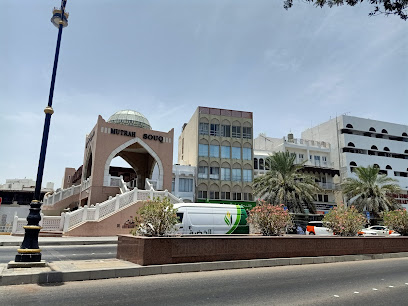
Mutrah Fort
Explore the historic Mutrah Fort in Muscat, a stunning blend of culture, history, and breathtaking coastal views.
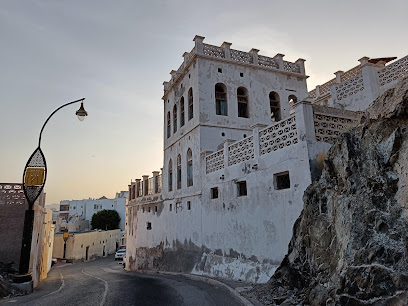
Old Watch Tower
Explore the Old Watch Tower in Muscat, a historical landmark offering breathtaking views and a glimpse into Oman's rich heritage.
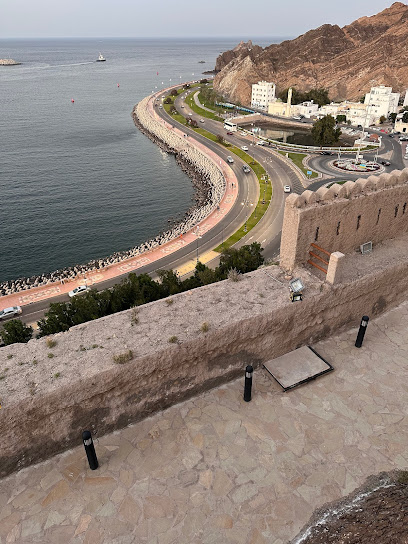
Mutrah Beach
Discover the serene beauty of Mutrah Beach in Muscat, where golden sands and turquoise waters create a perfect escape for tourists seeking relaxation and culture.
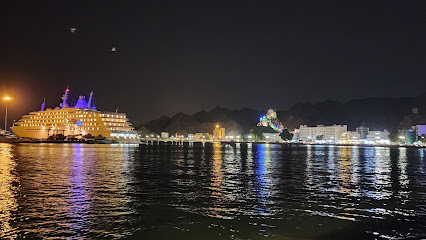
Mutrah Gate
Discover the cultural essence of Muscat at Mutrah Gate, where history meets vibrant market life.
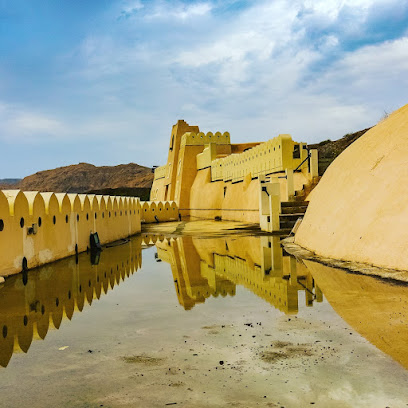
Mutrah Beach Walk Area
Discover the captivating beauty and vibrant culture of Muscat at the Mutrah Beach Walk Area, a serene coastal escape perfect for relaxation and exploration.
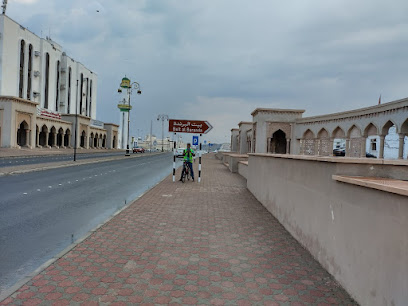
Mutrah Corniche
Explore the scenic beauty of Mutrah Corniche, a stunning waterfront promenade in Muscat, Oman, featuring breathtaking sea views and cultural experiences.
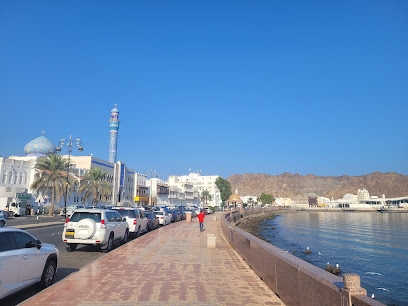
Mutrah City Walls
Experience the majestic Mutrah City Walls in Muscat, a historical landmark blending ancient architecture with stunning panoramic views.
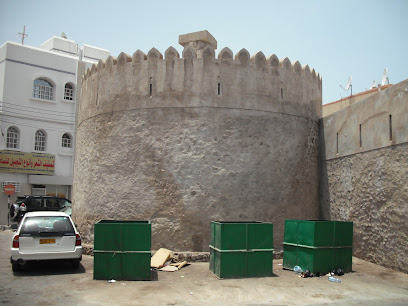
Mutrah full view
Discover breathtaking panoramas at Mutrah full view, a stunning viewpoint in Muscat, showcasing the beauty of the Omani coastline and cityscape.
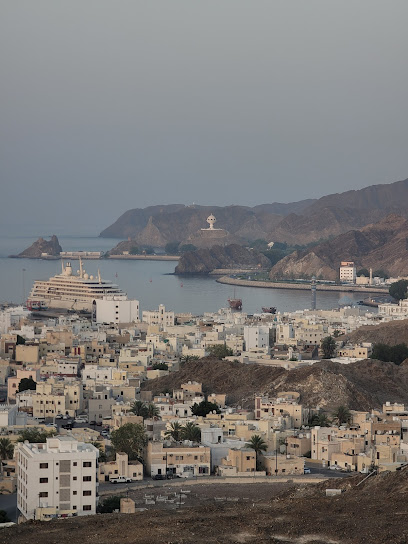
Mutrah Pier
Discover the enchanting Mutrah Pier in Muscat, Oman – a vibrant waterfront destination filled with rich culture, stunning views, and local treasures.
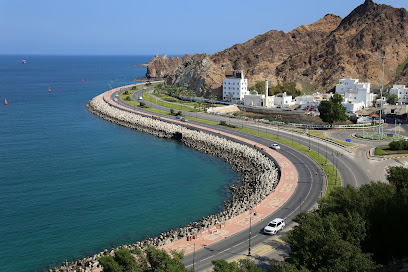
Old Souq Watchtower
Discover the Old Souq Watchtower, a historical landmark in Muscat offering breathtaking views and a deep dive into Oman's rich cultural heritage.
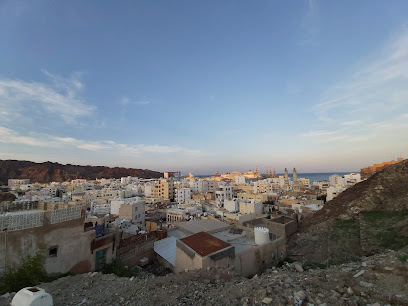
Unmissable attractions to see
Mutrah Beach
Experience the beauty and cultural richness of Mutrah Beach, a stunning coastal gem in Muscat, Oman, perfect for relaxation and exploration.
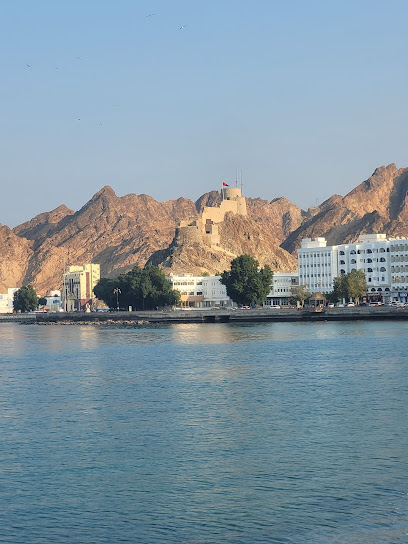
Mutrah Gate
Experience the captivating beauty of Mutrah Gate, the iconic gateway to Muscat's cultural treasures and vibrant heritage.
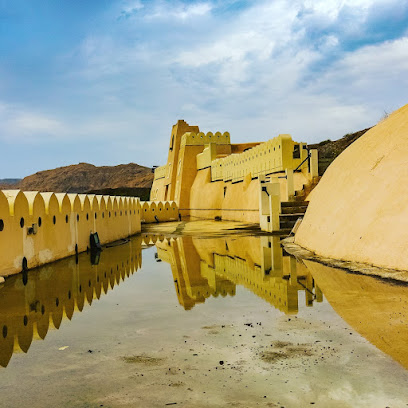
Mutrah Corniche
Experience the beauty of Muscat at Mutrah Corniche, a stunning waterfront promenade with breathtaking views and rich Omani culture.
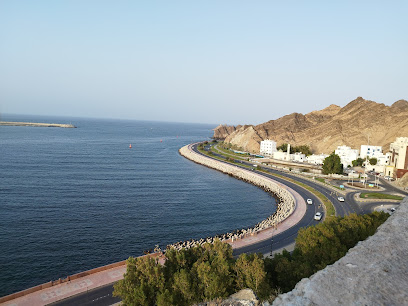
Mutrah full view
Discover the stunning coastal beauty and rich cultural heritage of Mutrah Full View, a must-visit attraction in Muscat, Oman.
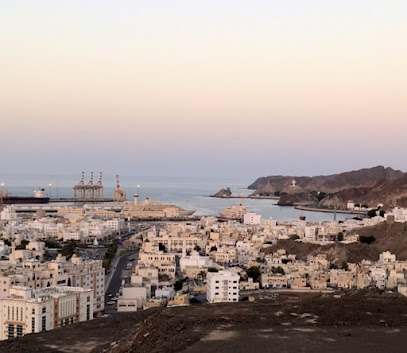
Mutrah Pier
Experience the scenic beauty and cultural vibrancy of Mutrah Pier in Muscat, where tradition meets modernity along the stunning waterfront.
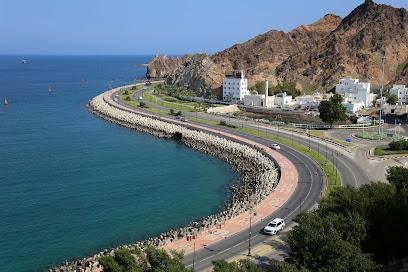
Muttrah fort entrance
Explore the historic Muttrah Fort Entrance, where Omani heritage and stunning views converge in a captivating travel experience.
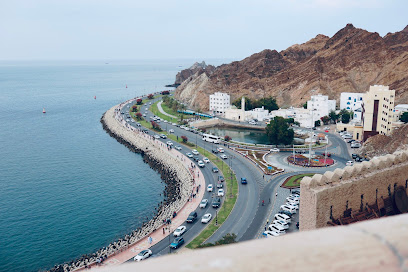
Essential places to dine
Bait Al Luban Omani Restaurant
Experience the essence of Omani cuisine at Bait Al Luban - where tradition meets flavor in the heart of Muscat.
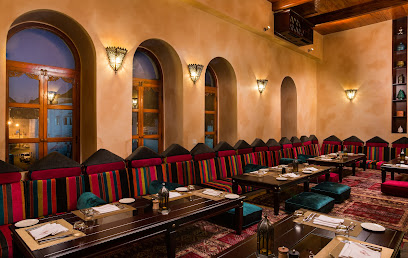
Royal House Restaurant
Discover exquisite seafood and continental cuisine at Royal House Restaurant along Muscat's stunning Muttrah Corniche.
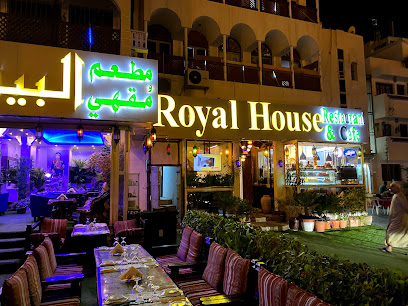
Kurkum Restaurant
Discover authentic Indian cuisine at Kurkum Restaurant in Muscat – where tradition meets flavor in every dish.
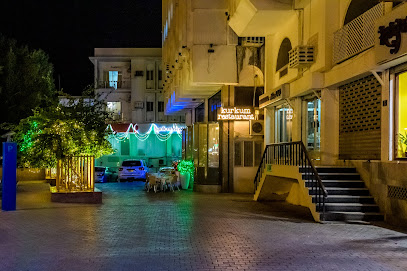
Gazebo Restaurant
Discover authentic Indian flavors at Gazebo Restaurant in Muscat—where every dish tells a story of tradition and taste.
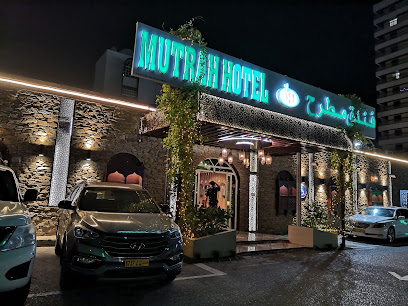
ALRAFEE RESTAURANT
Experience authentic Omani cuisine at Alrafee Restaurant in Muscat – where every dish tells a story of tradition and flavor.
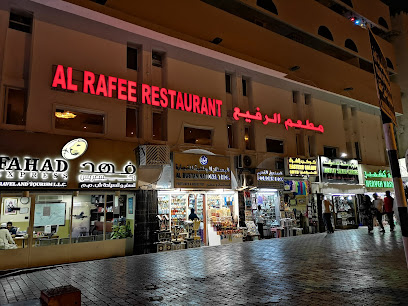
Sagar Restaurant
Experience authentic Omani flavors at Sagar Restaurant in Muscat's vibrant Mutrah district - a true culinary delight for every traveler.
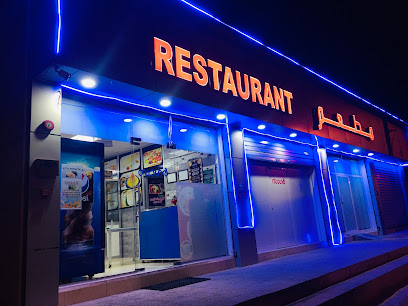
Welcome Restaurant
Discover exquisite Omani cuisine at Welcome Restaurant in Muscat – where tradition meets flavor in every dish.
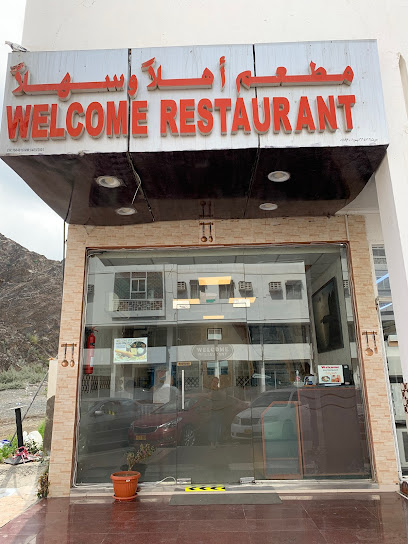
Muttrah Food Palace
Discover culinary treasures at Muttrah Food Palace - where authentic Omani flavors meet warm hospitality in Muscat.
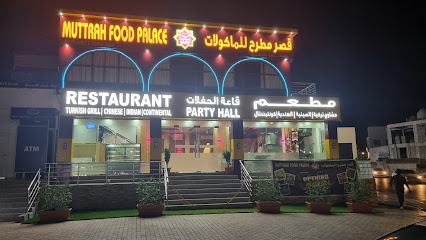
Grills Shawrma Juice & Grill
Discover authentic shawarma and refreshing juices at Grills Shawrma Juice & Grill along Muscat's stunning waterfront.
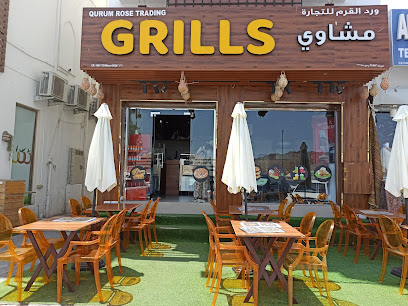
Asli Zaitoon Restaurant & Grills
Experience the essence of Omani cuisine at Asli Zaitoon Restaurant & Grills - where tradition meets flavor in the heart of Muscat.
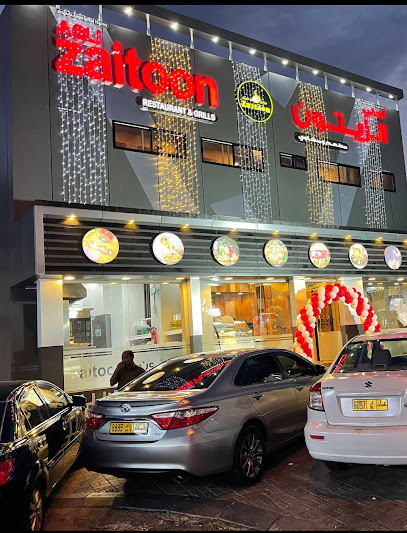
Markets, malls and hidden boutiques
Al Mazayeen Trading (Sales Perfumes, Antiques & Gifts ) المزايين للتجارة
Discover the enchanting world of fragrances and antiques at Al Mazayeen Trading in Muttrah Souq, Muscat.
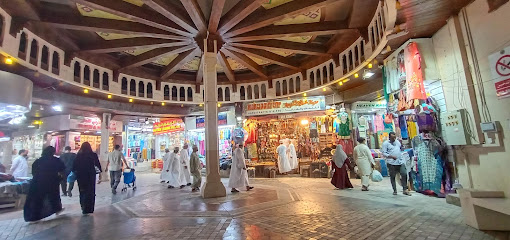
Antiques and Souvenirs Market محمد الهدابي لبيع التحف
Discover unique treasures at Muscat's Antiques and Souvenirs Market, where culture meets craftsmanship in a vibrant shopping experience.
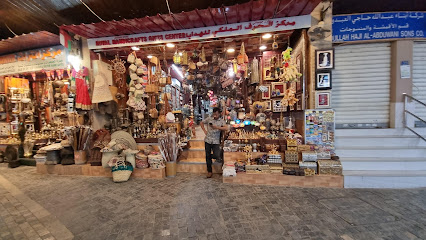
توزيعات
Discover unique Omani souvenirs and crafts at توزيعات, a charming gift shop in the heart of Muscat's Mutrah district.

Muttrah Waves
Explore Muttrah Waves for authentic Omani souvenirs and cultural treasures in the heart of Muscat, where tradition meets artistry.
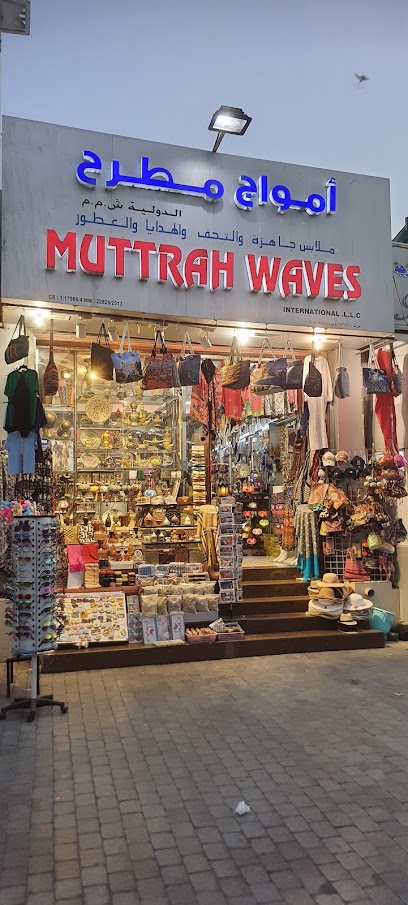
Alauddin City Handicrafts And Gifts
Explore the charm of Omani culture at Alauddin City Handicrafts and Gifts, where unique handicrafts meet the essence of Muscat.
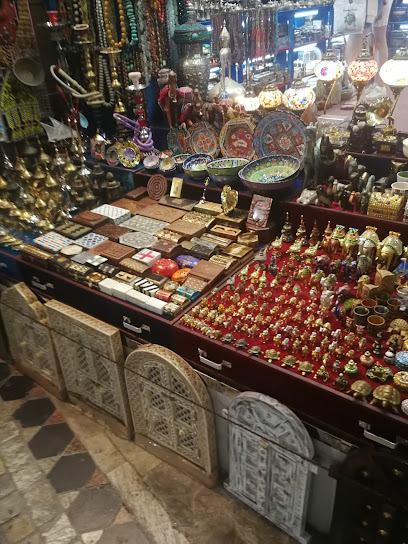
Muscat Turath
Discover the essence of Oman at Muscat Turath, a delightful gift shop offering authentic handicrafts and souvenirs that celebrate Omani culture.
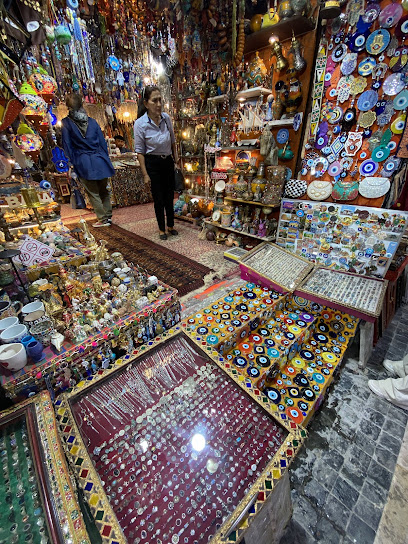
Oman Muscat,Muttrah, Corniche, Al Bahari Road
Explore the scenic beauty of Corniche Al Bahari in Muscat, where culture, shopping, and stunning seaside views await every traveler.
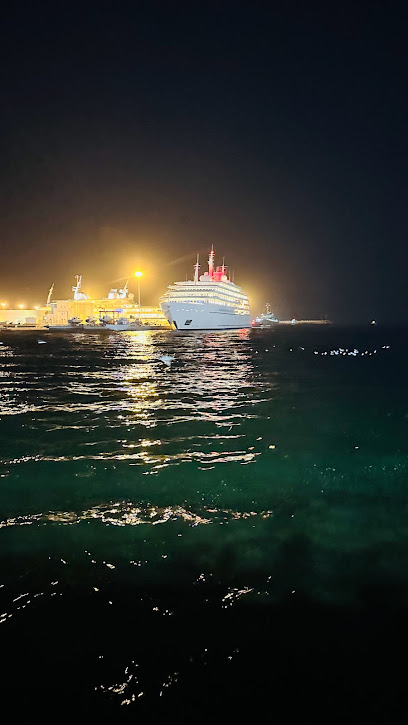
Saud Abdul Aziz mohd trading
Explore Saud Abdul Aziz Mohd Trading for authentic Omani souvenirs in the heart of Muttrah Souk, Muscat's vibrant marketplace.
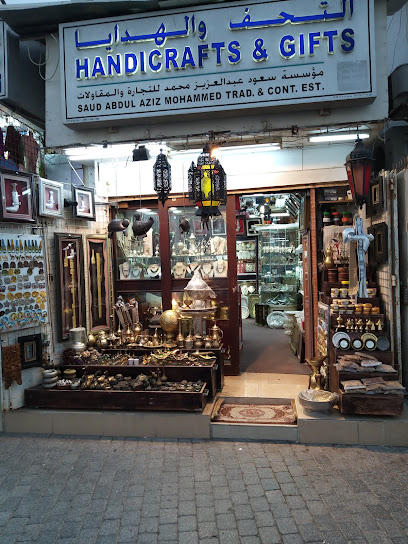
KHIMJI Trading Ent
Explore KHIMJI Trading Ent in Muscat for a unique blend of traditional and modern clothing, showcasing the best of Omani fashion.
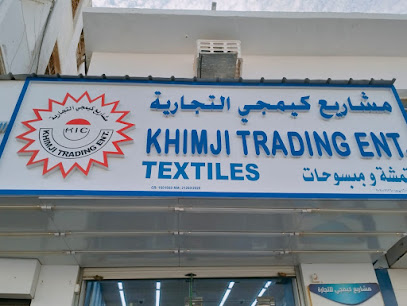
Shawlson
Discover Shawlson, your ultimate destination for authentic oriental treasures, unique textiles, and exotic culinary delights.

Essential bars & hidden hideouts
Rock Bottom Cafe Muscat
Experience the vibrant mix of American grill cuisine and nightlife at Rock Bottom Cafe Muscat, where every visit is a celebration of flavor and fun.
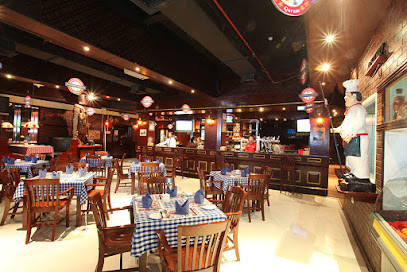
Al Ghazal Pub at InterContinental Muscat
Discover the lively Al Ghazal Pub at InterContinental Muscat, where sports, great food, and a welcoming atmosphere combine for an unforgettable experience.
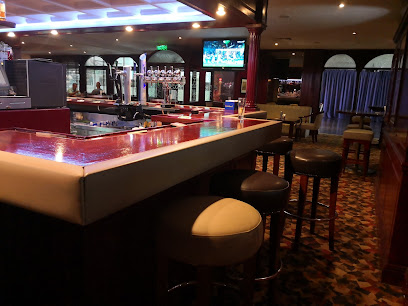
White Nile Hotel فندق النيل الابيض
Experience the vibrant atmosphere and diverse drink selection at White Nile Hotel bar in Muscat, a great spot to unwind and connect with locals.
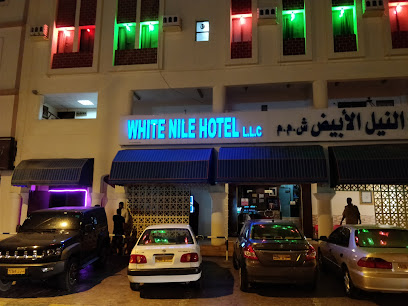
Turbine and Taps
Discover the charm of Turbine and Taps, a vibrant lounge in Muscat offering exquisite drinks, delightful cuisine, and a welcoming atmosphere.
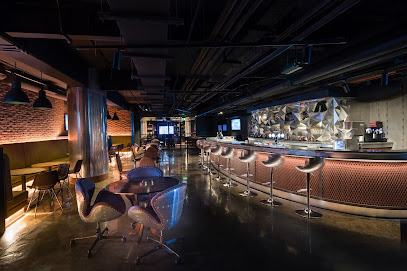
The Lounge
Experience the vibrant nightlife of Muscat at The Lounge, where comfort meets style in the heart of the city.
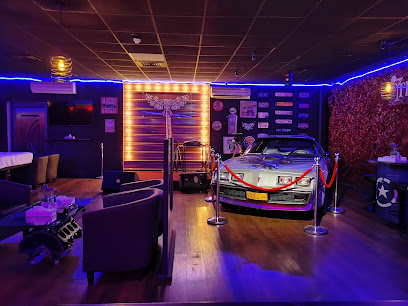
Nirvana
Discover Nirvana in Muscat - A culinary gem offering exquisite dishes and an inviting atmosphere for an unforgettable dining experience.
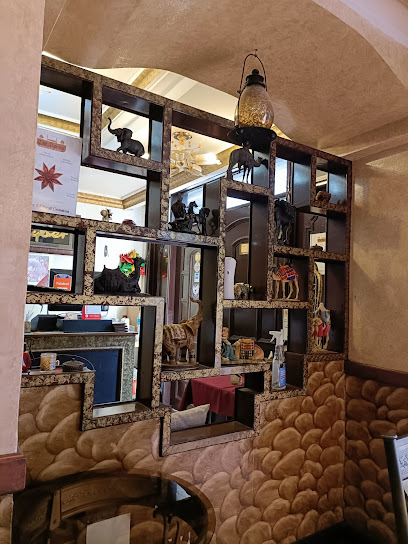
META GRILL & JUICE CAFE
Experience the best of Omani cuisine at Meta Grill & Juice Cafe in the heart of Mutrah Souq, where flavors and culture meet.
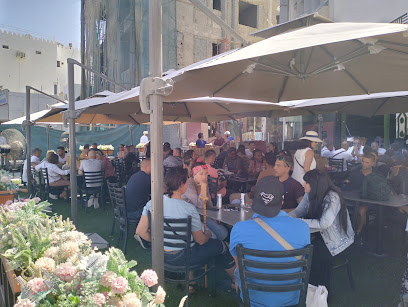
Cleopatra Arabic Bar
Experience authentic Arabic flavors and vibrant social scenes at Cleopatra Arabic Bar in Muscat, a must-visit for an unforgettable night out.

Sale of juce
Experience the vibrant flavors of Muscat at Sale of Juice, where refreshing beverages await in a lively bar atmosphere.
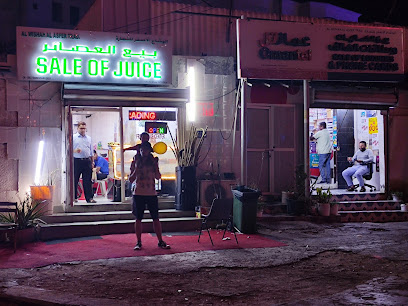
Ismail noufil kazia sugar daddy
Experience the vibrant nightlife of Muscat at Ismail Noufil Kazia, where eclectic drinks and a warm ambiance await every visitor.

Local Phrases
-
- Helloمرحبا
[marhaba] - Goodbyeوداعا
[wadaea] - Yesنعم
[naam] - Noلا
[laa] - Please/You're welcomeمن فضلك
[min fadlik] - Thank youشكرا
[shukran] - Excuse me/Sorryعذرا
[aathiraa] - How are you?كيف حالك؟
[kayf halik?] - Fine. And you?بخير. وأنت؟
[bikheer. want?] - Do you speak English?هل تتحدث الإنجليزية؟
[hal tatahadath alinglizia?] - I don't understandأنا لا أفهم
[ana la afham]
- Helloمرحبا
-
- I'd like to see the menu, pleaseأريد أن أرى القائمة، من فضلك
[ureed an ara alqaimah, min fadlik] - I don't eat meatأنا لا آكل اللحم
[ana la aakol allahm] - Cheers!في صحتك
[fi sahtak] - I would like to pay, pleaseأريد أن أدفع، من فضلك
[ureed an adfaa, min fadlik]
- I'd like to see the menu, pleaseأريد أن أرى القائمة، من فضلك
-
- Help!النجدة!
[alnajdah!] - Go away!انصرف!
[anserif!] - Call the Police!اتصل بالشرطة!
[etisal bialshurta!] - Call a doctor!اتصل بالطبيب!
[etisal bialtabib!] - I'm lostضاعت طريقي
[daat tariqi] - I'm illأنا مريض
[ana mareed]
- Help!النجدة!
-
- I'd like to buy...أريد أن أشتري...
[ureed an ashtari...] - I'm just lookingأنا فقط أتفرج
[ana faqat atfarg] - How much is it?كم سعره؟
[kam sairuh?] - That's too expensiveهذا غالي جدا
[hatha ghali jiddan] - Can you lower the price?هل يمكنك خفض السعر؟
[hal yumkinuk khafd alsair?]
- I'd like to buy...أريد أن أشتري...
-
- What time is it?كم الساعة؟
[kam alsaaah?] - It's one o'clockالواحدة
[alwahidah] - Half past (10)العاشرة والنصف
[alaashirah walnisf] - Morningالصباح
[alsaabah] - Afternoonالعصر
[aleasr] - Eveningالمساء
[almasaa] - Yesterdayأمس
[ams] - Todayاليوم
[alyawm] - Tomorrowغدا
[ghadan] - 1واحد
[wahid] - 2اثنين
[ithnayn] - 3ثلاثة
[thalatha] - 4أربعة
[arbaah] - 5خمسة
[khamsah] - 6ستة
[sittah] - 7سبعة
[sabah] - 8ثمانية
[thamania] - 9تسعة
[tisaah] - 10عشرة
[asharah]
- What time is it?كم الساعة؟
-
- Where's a/the...?أين...؟
[ayn...?] - What's the address?ما هو العنوان؟
[maa huwa alaunwan?] - Can you show me (on the map)?هل يمكنك أن تريني (على الخريطة)؟
[hal yumkinuk an tureeni (ala alkhareetah)?] - When's the next (bus)?متى يأتي الحافلة التالية؟
[mata yaati alhafilat altaalia?] - A ticket (to ....)تذكرة (إلى...)
[tadhkurah (ila...)]
- Where's a/the...?أين...؟
History of Muttrah
-
Muttrah's history as a coastal settlement began in antiquity, its strategic position along the Gulf of Oman making it a vital port for maritime trade. By the 1st century AD, it was already recognized in the trade routes of the Arabian Peninsula, facilitating exchanges between the East and West. The nearby ruins of ancient forts and trading posts serve as a testament to its early significance in commerce.
-
In the early 16th century, Portuguese explorers captured Muttrah as part of their attempts to control the trade routes in the Indian Ocean. They built the Fort of Muttrah, which stands today as a historical landmark. The Portuguese presence significantly impacted local trade and culture, introducing new architectural styles and fortification techniques that would influence Omani architecture for centuries.
-
By the mid-17th century, the Omani people expelled the Portuguese, marking the beginning of the modern Sultanate of Oman. Muttrah became a hub for the new sultanate's trade activities, with its port facilitating the export of Omani goods such as dates, pearls, and frankincense. This period solidified Muttrah's role as a gateway to the Arabian Peninsula and beyond.
-
The Muttrah Souq, established in the late 20th century, is a vibrant marketplace that reflects Oman's rich cultural heritage. It is known for its traditional crafts, textiles, and spices, attracting both locals and tourists. The souq's layout and architecture embody the historical trading practices of the region, preserving the essence of Omani culture and commerce.
-
In recent decades, Muttrah has undergone significant modernization while striving to preserve its cultural heritage. The waterfront promenade, known as the Corniche, has been developed into a recreational area, blending contemporary leisure with historical sites. Efforts to maintain the integrity of Muttrah's traditional architecture and culture continue, showcasing Oman's commitment to balancing progress with heritage.
Muttrah Essentials
-
Muttrah is easily accessible from various neighbourhoods in Muscat. If you're arriving from the city centre, you can take a taxi or use ride-hailing apps like Careem or Uber, which are widely available. Public buses also operate routes to Muttrah, with Bus 1 being a popular option that connects Al Khuwair to Muttrah. For those coming from Muscat International Airport, taxis are the most convenient mode of transport, with the journey taking approximately 30 minutes.
-
Muttrah is a walkable neighbourhood, especially around the Corniche, which is ideal for strolling and enjoying the views. While public buses are available, they may not be the most convenient for tourists. Taxis are affordable and a good option for traveling short distances. Bicycles can be rented at various locations, particularly around the waterfront, allowing for a leisurely ride along the coast.
-
Muttrah is considered a safe neighbourhood for tourists, with low crime rates. However, it is advisable to remain vigilant in crowded areas, particularly the Muttrah Souq, where petty theft can occur. Avoid walking alone late at night in less populated areas. Overall, standard safety precautions should suffice to ensure a pleasant visit.
-
In case of an emergency, dial 9999 for police, ambulance, or fire services in Oman. Make sure to have your location ready to provide to the operator. The nearest hospital is the Royal Hospital in Al Khuwair, about 15 minutes away by taxi. Travel insurance covering medical emergencies is recommended. Pharmacies are available in Muttrah for minor health issues.
-
Fashion: Do dress modestly, especially in public areas and when visiting religious sites; avoid revealing clothing. Religion: Do respect local customs; when visiting mosques, women should cover their heads, and men should wear long trousers. Public Transport: Do be courteous to other passengers and give up your seat for the elderly; don't eat or drink on public transport. Greetings: Do greet with a handshake, and a nod of the head is also appreciated; avoid overly familiar gestures. Eating & Drinking: Do try local dishes and accept food offers graciously; don't refuse hospitality as it may be seen as disrespectful.
-
To experience Muttrah like a local, visit the Muttrah Souq early in the morning when it is less crowded and the vendors are more approachable. Engage with shopkeepers, who often share stories about their crafts. Attend local cultural events if available, and try traditional Omani coffee (kahwa) and dates. For a unique perspective, take a walk along the Corniche at sunset for stunning views of the sea and mountains.
Nearby Cities to Muttrah
-
Things To Do in Rustaq
-
Things To Do in Nizwa
-
Things To Do in Bahla
-
Things To Do in Sur
-
Things To Do in Sohar
-
Things To Do in Ibri
-
Things To Do in Fujairah
-
Things To Do in Khor Fakkan
-
Things To Do in Al Ain
-
Things To Do in Dibba Al-Fujairah
-
Things To Do in Ras Al Khaimah
-
Things To Do in Ajman
-
Things To Do in Khasab
-
Things To Do in Sharjah
-
Things To Do in Umm Al Quwain










